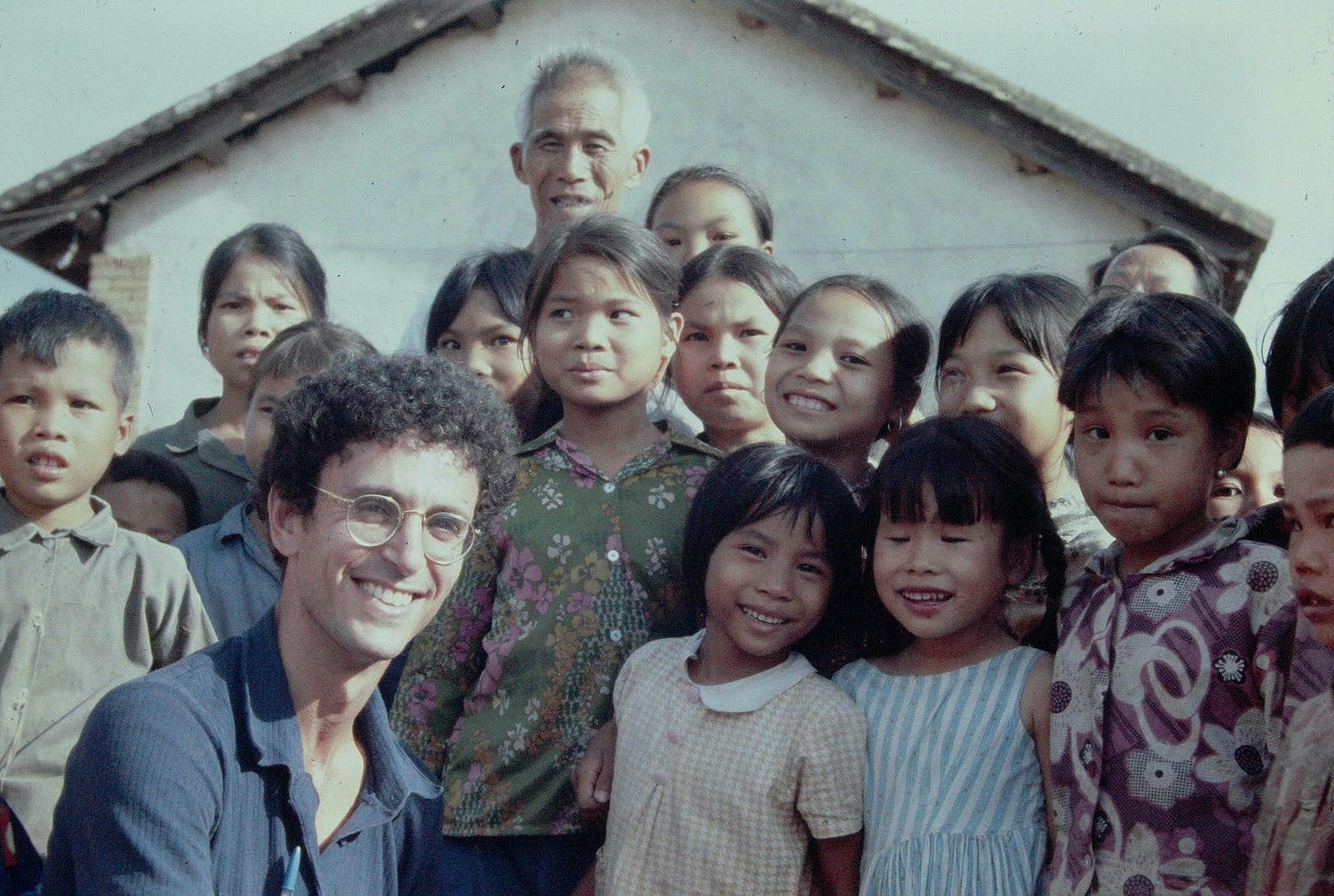"Is this Jewish boy from a chicken farm in Connecticut actually sitting with the Chancellor of Germany—smoking a cigar and talking about the world?"
Richard Bernstein tells us about his incredible 50-year career as a journalist and author, plus how he landed in Park Slope and what he loves about the neighborhood.
Hi, I’m Kelley MacDonald, and each week, I interview a fun Park Sloper about their life and their favorite things to see, eat, and do in Park Slope. If you'd like to read these interviews, please upgrade to paid. If you stick with a free subscription, you'll get my monthly emails, plus occasional free emails. Thank you so much for being here!
Hi! It’s Friday again, and that means I’m back with another fun interview. There’s something about publishing these every Friday that makes it feel like my weeks are flying by.
Today, I’m excited to feature journalist Richard Bernstein. While Richard is widely known for his work on China and foreign affairs, he also covered all kinds of topics for TIME, The Washington Post, and The New York Times, among others. “I covered trials; I covered intellectual life in America. I did street reporting, and I was a book critic for six years,” says Richard. He’s also the author of 10 books, including his newest, “Only in America: Al Jolson and The Jazz Singer,” which will be out later this year.
Here, Richard shares how he got into journalism, formative memories from his career, as well as a great spot for Vietnamese sandwiches, a reliable bike shop, a couple places to play pickleball, and more.
Kelley MacDonald: Hi Richard! Thank you so much for speaking with me today! I have to say, I'm a little nervous to interview you. You’ve done a lot of interviewing throughout your career as a journalist.
Richard Bernstein: Yes, and I was nervous before every single one of them. So I know the feeling, but don't be nervous. It's only me. I'm flattered you even thought of me.
Okay, first off, what initially attracted you to Park Slope?
My wife, son, and I moved back to New York, after living in Berlin for four years, where I was The New York Times bureau chief. I always lived on the Upper West Side during my previous sojourns in New York, but we looked around for a place and couldn't find anything that we could remotely afford. Some friends of ours who live here said we should take a look at Park Slope, and our broker arranged for us to spend a day here. The very first house we saw was the one that we bought, and we love it.
The things that we liked about the neighborhood when we first moved in are things that we continue to like about the neighborhood. The sedate graciousness of it; the beauty of the streets. It's not overwhelming and overpowering, like Manhattan. There's a village-like charm to it.

But you’re not from New York. In fact, you grew up on a poultry farm in Connecticut. What was that like— I’m so curious?!
[Laughs] It was interesting. I have an idealized vision of it, a kind of rural paradise. It was small-town America, but there was a lot going on. It was quite a rich life. We were adjacent to a 100-acre apple and peach orchard where we would go rambling, and we boarded horses and would ride them in the fields and down old lumber camp roads that went through the woods along the Connecticut River.
When I was eight or nine, my father taught me how to drive the farm pickup truck, and I used to drive to the chicken coops and collect eggs. We would bring the eggs in these wire baskets to the cellar of the house, which was a mid-19th century, pre-Civil War wooden frame house. There was a grader in the cellar that separated small, medium, large, extra large, and jumbo eggs and packed them in cardboard containers. And once a week, a wholesaler came to get the eggs. I know what it’s like to be a small boy sticking his hand under the belly of a mean-looking chicken and taking away its eggs [laughs]. Sometimes they let you do it peacefully and sometimes they peck away at your hand and wrist.
My parents bought the farm in 1946, I think, after my father came back from serving almost three years in the army during World War II. It was in this little town called East Haddam, Connecticut, on the Connecticut River. My father got a loan from something called the Jewish Agricultural Society to buy the chicken farm. Several other Jewish people did too, including Holocaust survivors, because the poultry business was one that you could get into without a huge capital expenditure, unlike, for example, dairy farming. And you didn’t need a huge amount of technical knowledge to run a chicken farm. So, there were a bunch of small poultry farms in this town that were almost all Jewish. There was a huge dairy farm down the road from where we lived. Sometimes their cows came wandering over the stone wall into our yard and the fields behind our house, and we’d find them grazing there in the morning when we woke up. They were very nice and we’d bring our city-slicker summer boarders to visit their cows. We bought fresh milk from them. These are all warm and cozy memories of growing up on the farm. And then, we sold it when I was 13.
Wow, so how did you go from small-town America to your first break in journalism?
Keep reading with a 7-day free trial
Subscribe to Park Slope Times to keep reading this post and get 7 days of free access to the full post archives.







